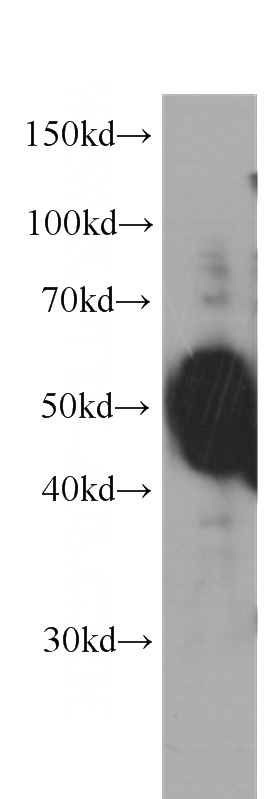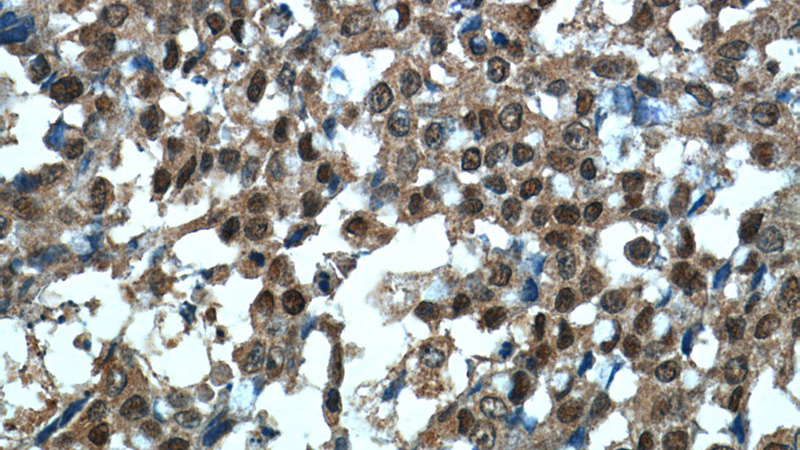-
Product Name
OCT4 antibody
- Documents
-
Description
OCT4 Mouse Monoclonal antibody. Positive WB detected in human brain tissue, HEK-293 cells. Positive IHC detected in human colon cancer tissue. Observed molecular weight by Western-blot: 50-52KD
-
Tested applications
ELISA, WB, IHC
-
Species reactivity
Human,Mouse; other species not tested.
-
Alternative names
OCt 3 antibody; OCt 4 antibody; OCT3 antibody; OCT3/4 antibody; OCT4 antibody; OCtamer binding protein 3 antibody; OCtamer binding protein 4 antibody; OTF 3 antibody; OTF3 antibody; OTF4 antibody; POU class 5 homeobox 1 antibody; POU5F1 antibody
-
Isotype
Mouse IgG1
-
Preparation
This antibody was obtained by immunization of ℃T4 recombinant protein (Accession Number: BC020712). Purification method: Protein G purified.
-
Clonality
Monoclonal
-
Formulation
PBS with 0.02% sodium azide and 50% glycerol pH 7.3.
-
Storage instructions
Store at -20℃. DO NOT ALIQUOT
-
Applications
Recommended Dilution:
WB: 1:500-1:5000
IHC: 1:20-1:200
-
Validations

human brain tissue were subjected to SDS PAGE followed by western blot with Catalog No:107344(ocT4 antibody) at dilution of 1:1000

Immunohistochemistry of paraffin-embedded human colon cancer tissue slide using Catalog No:107344(ocT4 Antibody) at dilution of 1:50 (under 40x lens)
-
Background
Expression of the ocT4 transcription factor is associated with an undifferentiated phenotype of human and mouse embryonic stem cells and germ cells. ocT4 (octamer-4) is a homeodomain transcription factor of the POU family (POU5F1) involved in regulation of pluripotency during normal development and is detectable in embryonic stem (ES) and germ cells. Its expression is associated with an undifferentiated phenotype and tumors. In fact, gene knockdown of ocT4 promotes differentiation, thereby demonstrating a role for this factor in human ES cell self-renewal. As such, it is frequently used as a marker for undifferentiated ES cells or iPS (induced pluripotent stem) cells. ocT4 is one of the four key transcription factors (ocT4, SOX2, c-MYC, and KLF4) used to reprogram mouse and human fibroblasts to a pluripotent state as well as generate patient-specific iPS cells.
Related Products / Services
Please note: All products are "FOR RESEARCH USE ONLY AND ARE NOT INTENDED FOR DIAGNOSTIC OR THERAPEUTIC USE"
